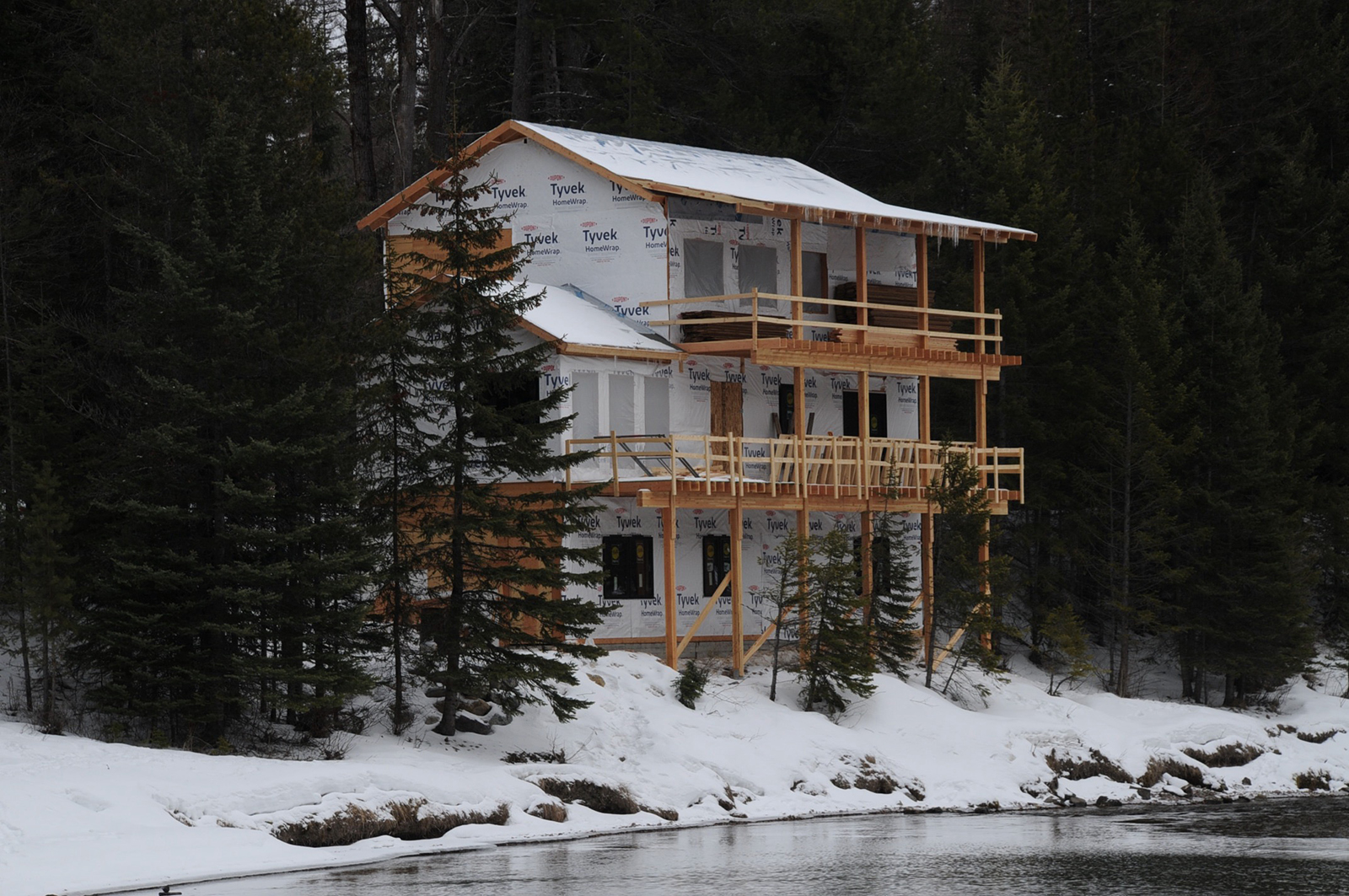McDonald Creek Homeowners Sue Flathead Conservation District Over Demolition Decision
The amended complaint comes a month after a hearing examiner determined the Flathead Conservation District has authority to enforce Montana’s streambed laws in Glacier National Park
By Tristan Scott
A California couple who built a home on the banks of McDonald Creek in Glacier National Park without a permit to do so is suing the Flathead Conservation District (FCD), arguing that the state agency acted “arbitrarily and capriciously” when it applied Montana’s half-century old streambed law to order the structure’s demolition.
John and Stacy Ambler filed the amended complaint in Flathead County District Court on Dec. 13, exactly one month after an arbiter in the case affirmed it was built without approval and remanded the case back to FCD’s Board of Supervisors, which in a unanimous vote ruled that the Amblers must remove the home and remediate the streambed no later than April 1, 2024.
Trent Baker, of Datsopoulos, MacDonald & Lind, a Missoula-based law firm representing the Amblers, said his clients intended to further litigate the matter by appealing Zeller’s decision and seeking a judicial ruling in District Court. If they are dissatisfied with that lower court’s determination, they may then seek judicial review through an appeal to the Montana Supreme Court.
“As a result of the conduct of the District, the Ambler’s [sic] have incurred substantial damage in an amount to be proved at trial, including damages for the loss of use of their property,” Baker wrote in the lawsuit, which will be heard by Flathead District Judge Robert Allison.
The lawsuit alleges FCD violated the Montana Constitution and the state’s Natural Streambed and Land Preservation Act because its decisions deprived the Amblers of their due process and property rights and constitute “a taking of their property without just compensation.”
The complaint seeks compensatory damages, including damages for the loss of use of their property, as well as attorneys’ fees and additional relief “as this Honorable Court deems just.”
The saga over the legality of the McDonald Creek property began in March, when the FCD Board of Supervisors determined that the Amblers built their home without a valid 310 permit in violation of the 1975 Montana Natural Streambed and Land Preservation Act. To correct the violation, the supervisors ordered the Amblers to remove the structure before Nov. 1, and to restore and revegetate the streambank. Not only must the work occur after high water, according to an order for corrective action, but a 310 permit must be obtained prior to beginning both the demolition work and the streambank restoration.
Although the Amblers admitted that they did not obtain an approved permit, they say they took steps to ensure they were meeting all regulatory requirements prior to purchasing the 0.05-acre, 2,309-square-foot parcel in 2019. The couple challenged the FCD’s jurisdictional authority in the case and proceeded to what’s called a declaratory ruling process, which was overseen by hearing officer Laurie Zeller, a retired bureau chief with the Montana Department of Natural Resources and Conservation (DNRC).
Given the couple’s decision to appeal, it’s unclear whether the demolition project — which requires the Amblers to apply for and receive a permit and to minimize further impacts to McDonald Creek — will occur by April 1.

Although the case is unique given the project’s location inside a national park, case law appears to support the Flathead Conservation District’s jurisdictional authority, according to Zeller, who acknowledged the case’s complexity. Still, despite the Amblers making “a pretty compelling case,” Zeller said her final analysis is that the streambed law applies to the Amblers and the Flathead Conservation District exercised proper enforcement authority when it ordered the structure be removed.
“I believe that everyone who is building on or near a perennial-flowing stream in the state of Montana is subject to that law,” Zeller said last month. “I believe that the house is within the definition of a perennial-flowing stream, I believe it has a permanent impact and I think as such it requires review.”
Zeller further stated that some of the impacts are continuing, including erosion to the banks of McDonald Creek, and that “those impacts are going to continue” throughout the appeals project.
Zeller said the Amblers’ assertion that the property was subject to federal and not state jurisdiction was incorrect by her analysis.
“This particular project involves a private individual on private land pursuing a private project, so there’s no federal nexus to this particular project,” Zeller said. “In fact some of the information in the record shows that the federal government was not taking jurisdiction.”
But the Amblers argue in their lawsuit that, upon purchasing the private inholding in Glacier National Park, they contacted Flathead County to inquire about permits that might be required to construct a residence, and that “Flathead County informed the Amblers in writing that, because the property is an un-zoned property within Flathead County, the County does not regulate the use of the land and that the Amblers could do ‘whatever [they] want with the land without restriction.”
“Glacier National Park also did not require any permits from the Amblers and authorized them to connect their residence to the Apgar Village water and sewer system,” the lawsuit states.